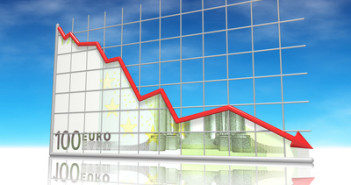We saw subdued trading overnight as the markets continue to digest the remarks made by Bundesbank head Weidmann and await the beginning of the G20 meeting today.
Weidmann’s comment that the ECB could lower interest rates if the Eurozone economy worsens, sent the EUR tumbling from a high of 1.3199 to a low of 1.3000, before profit taking brought the currency back to the mid 1.30’s.
Weidmann also said that “overcoming the Euro crisis and the crisis effects will remain a challenge over the next decadeâ€. He was also skeptical of Eurozone recovery this year. The comments that he made were not anything that most traders hadn’t realized before. That he said them publicly was what shocked the markets. Traders had been listening to ECB President Mario Draghi assure them that Eurozone recovery was happening and this news had been good enough for traders to feel confident buying the single currency.
new TradingView.widget({
“width”: 610,
“height”: 400,
“symbol”: “FX:EURUSD”,
“interval”: “60”,
“toolbar_bg”: “#E4E8EB”,
“hide_side_toolbar”: false,
“allow_symbol_change”: true
});
Adding to the uncertainty of the EUR, Italy attempts to elect a president. Failure to elect the next president will keep the political deadlock in Italy going further. The leading candidate now seems to be former Senate speaker Franco Marini. A victory here could help stabilize the EUR. Italian lawmakers begin voting this morning around 8:00 London time.
If the president is elected, his first job would be to attempt to revive talks among the major Italian parties to form a new government. If political stalemate continues, the President will be forced to dissolve parliament, and elections would not be held until mid July at the earliest since there is a required 45 day period mandated between dissolution and elections.
The G20 meeting will now be the main focus as it begins later this week. According to reports, the draft statement ahead of the meeting reiterates the pledge for countries to “refrain from competitive devaluation and move towards market determined exchange rate systemsâ€. It was originally thought that Japan might get some criticism from other members for their weakening of the JPY over the last few weeks, but it appears now that this will not occur. Based on comments made yesterday by US Treasury Secretary Jacob Lew, Japan’s recent actions, which encourage domestic demands with domestic tools are consistent with the G20 pledge. There will be further talks urging China to “pick up the pace†of the Yuan devaluation. Concerns about the economic recovery in the Euro zone will also be addressed.
See G-20 infographic.
Lower commodity prices continue to drag currencies lower. Copper, as well as gold and silver have declined to levels not seen in almost 2 years, and Brent crude oil prices have fallen below the $100 level per barrel for the first time since mid 2012. This has pushed the “commodity currencies†(Aussie, Canadian, Kiwi, and Norwegian Krone) lower. USD/CAD is currently trading around the 1.0250 area and AUD is calm at the 1.0325 level.
As we head into trading today, the question is whether traders will try to test the support levels on the EUR at 1.3020 and 1.3000. Resistance for the EUR is at 1.3100. USD/JPY has traded above and below the 98.00 level as markets await the G20 meeting.
Further reading:Â What goes up. must go down



